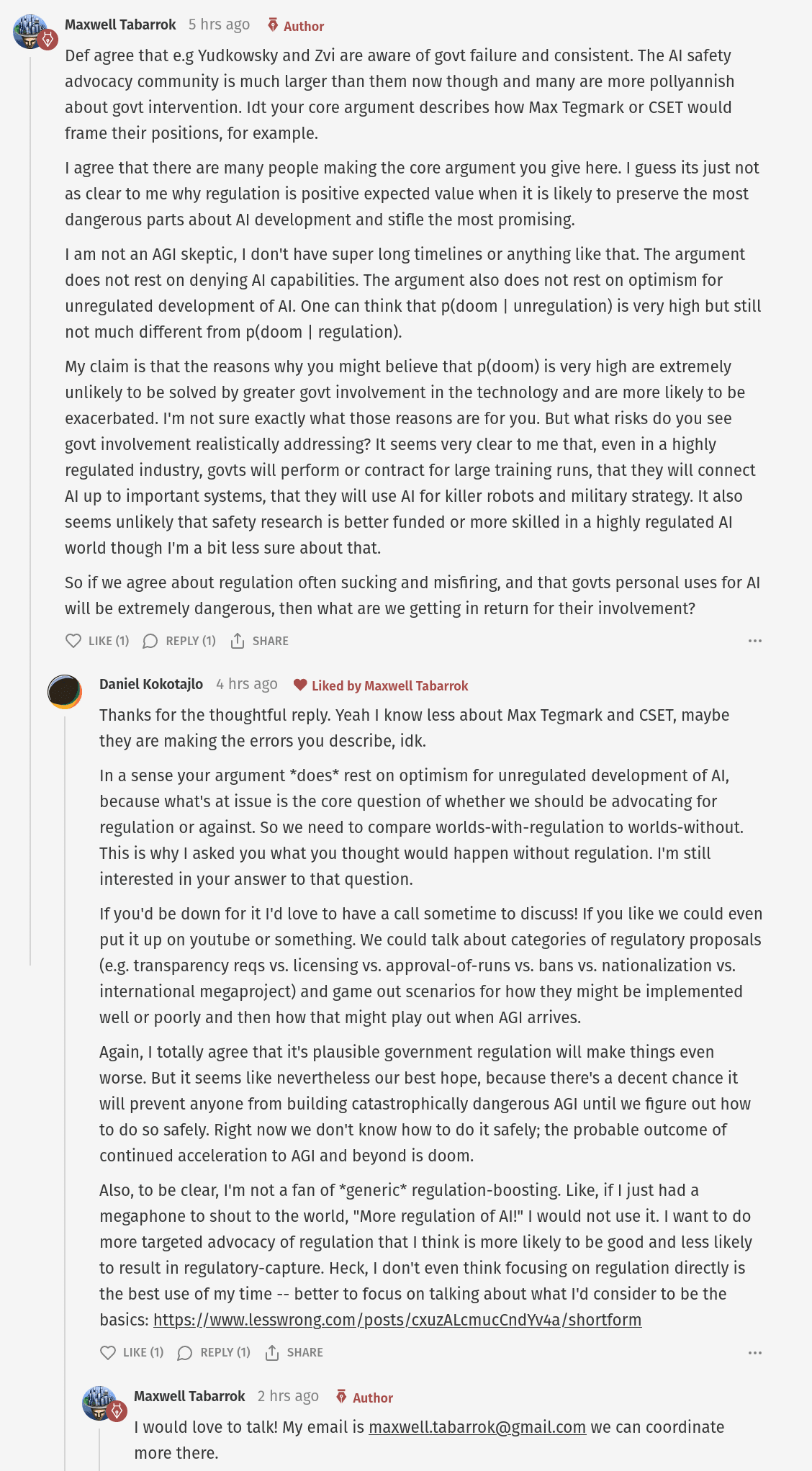All of Maxwell Tabarrok's Comments + Replies
A couple of reasons why authors might be worried about the press:
It's a massive change to the technology of what they produce. This comes with lots of uncertainty and fear.
It commodifies books and massively decreases the unit price. Depending on how much you think quantity demanded will change, it could easily decrease your income. E.g, if the press came around and no one read any more books, it would be scary for authors and many would be out of work since now a single author can produce 100x more books.
Hmm fair enough, I didn't consider that there would already be a lot of specialization between authors and copyists pre-press. Still, I think I can rewrite the paragraph to remove this error and preserve the parts relevant to the overall post:
>First: the printing press. In 1400, the labor and skill that went into copying a book made up the majority of its value. Authors confronted with a future where the most valuable part of each of their books is automated for a tiny fraction of the cost might understandably be terrified. Each book would be worth a tiny fraction of what they were worth before, surely not enough to support a career.
That's not a part of any of the plans to cancel student debt that have been implemented or are being considered. That would definitely change a lot of the arguments but I don't think it would make debt cancellation look like a much better policy, though the reasons it was bad would be different.
Firms are actually better than governments at internalizing costs across time. Asset values incorporate the potential future flows. For example, consider a retiring farmer. You might think that they have an incentive to run the soil dry in their last season since they won't be using it in the future, but this would hurt the sale value of the farm. An elected representative who's term limit is coming up wouldn't have the same incentives.
Of course, firms incentives are very misaligned in important ways. The question is: Can we rely on government to improve these incentives.
Daniel and I continue the comment thread here
https://open.substack.com/pub/maximumprogress/p/ai-regulation-is-unsafe?r=awlwu&utm_campaign=comment-list-share-cta&utm_medium=web&comments=true&commentId=54561569
(crossposting here to avoid trivial inconveniences)

It's not a Motte and Bailey because I don't switch between positions. My definition of the hardline position is to "restrict the FDA’s mandatory authority to labeling and make their efficacy testing completely non-binding."
I could have made an argument for removing FDA safety testing as well but I didn't. I am arguing only for the Motte against Scott's plan to expand supplements and experimental drugs.
That's awesome to hear! Hope you enjoy
Thank you for reading!
There's a great chapter in Deustch's Beginning of Infinity on counterintuitive properties of infinite sets. One of them is relevant to anthropic reasoning type arguments sometimes made by longtermists.
For example, the grabby aliens paper deducing a lot of information based on the fact that human's appearance seems astoundingly early relative to the lifetime of the universe. Or the Doomsday argument which says we should expect the world to end soon as that's the only outcome which would make our presence average rather than being an ou...
Yeah, there can definitely still be imbalances/extra costs imposed on defenders but the point I'm making is that the projections people make are very often large over-estimates of what those costs will be.